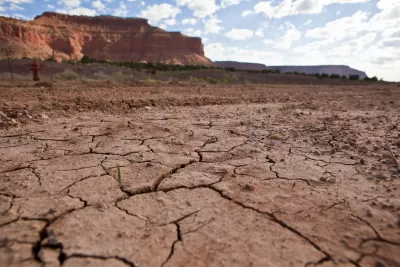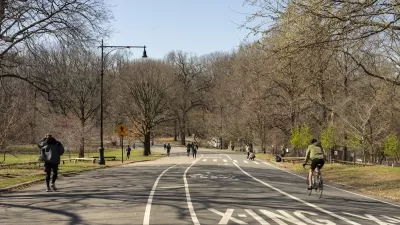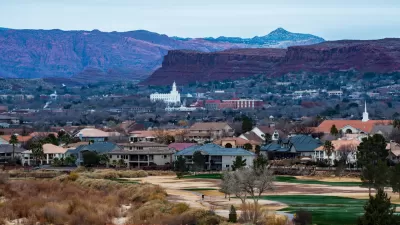As climate change heightens the risk of intense drought periods, a new framework can help scientists better understand the interconnected causes and effects of drought.

Although droughts "are more complex than mere shortages of precipitation or surface water," scientists have had few terms for describing and defining different droughts and their causes, writes Elizabeth Thompson for Eos.
"To address this deficiency, AghaKouchak et al. propose the idea of anthropogenic drought, which accounts for both natural variation and human actions. For instance, droughts are affected by local decisions about water and land use as well as by such global conditions as greenhouse gas levels and climate change. The authors suggest that scientists think of drought as a process with contributing factors, effects, and feedbacks rather than as simply a final product."
The proposed framework, says Thompson takes into account the "far-reaching and often unexpected effects, including damage to local ecosystems, social unrest, and economic loss" of droughts. "The researchers say that human activities and decisions as well as related feedbacks should be integrated into new models that include both water and energy balances to achieve reliable modeling of drought as a process. By understanding how droughts develop as processes, scientists will be able to more accurately predict droughts, they suggest, allowing decision-makers to respond appropriately and sustainably."
FULL STORY: A Better Way to Understand Drought

Planetizen Federal Action Tracker
A weekly monitor of how Trump’s orders and actions are impacting planners and planning in America.

Chicago’s Ghost Rails
Just beneath the surface of the modern city lie the remnants of its expansive early 20th-century streetcar system.

San Antonio and Austin are Fusing Into one Massive Megaregion
The region spanning the two central Texas cities is growing fast, posing challenges for local infrastructure and water supplies.

Since Zion's Shuttles Went Electric “The Smog is Gone”
Visitors to Zion National Park can enjoy the canyon via the nation’s first fully electric park shuttle system.

Trump Distributing DOT Safety Funds at 1/10 Rate of Biden
Funds for Safe Streets and other transportation safety and equity programs are being held up by administrative reviews and conflicts with the Trump administration’s priorities.

German Cities Subsidize Taxis for Women Amid Wave of Violence
Free or low-cost taxi rides can help women navigate cities more safely, but critics say the programs don't address the root causes of violence against women.
Urban Design for Planners 1: Software Tools
This six-course series explores essential urban design concepts using open source software and equips planners with the tools they need to participate fully in the urban design process.
Planning for Universal Design
Learn the tools for implementing Universal Design in planning regulations.
planning NEXT
Appalachian Highlands Housing Partners
Mpact (founded as Rail~Volution)
City of Camden Redevelopment Agency
City of Astoria
City of Portland
City of Laramie





























